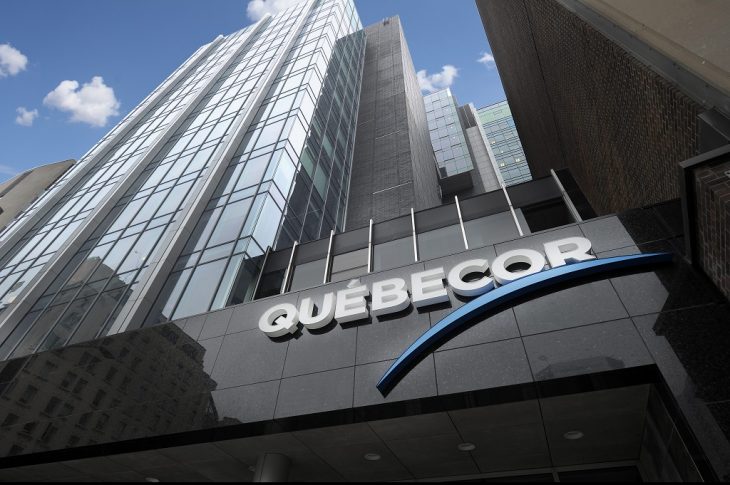
By Ahmad Hathout
The head of Quebecor on Thursday excoriated the federal government’s decision to up CBC/Radio-Canada’s annual funding while not forcing it out of commercial advertising sales.
The Liberals allocated an additional $150 million to the public broadcaster’s annual appropriation, which was a pre-election commitment from Prime Minister Mark Carney, but did not push it out of those ad sales for which private television broadcasters compete.
“Regrettably, this new government has missed an opportunity to support an industry facing ever-growing challenges and job losses at an alarming rate,” Pierre Karl Peladeau, president and CEO of Quebecor, said during the company’s third-quarter earnings conference call Thursday.
Private broadcasters have, for a long time, talked about the need to get the taxpayer-funded entity out of ad sales, which are their lifeblood.
Peladeau noted for its TVA Group that there is a “structural crisis threatening the sustainability of the Quebec television industry, particularly due to the accelerated decline in advertising revenues” and that the company has done its part navigating these challenges, including major restructuring plans.
“It is time for our governments to take the necessary action on their end,” he said. “After countless advocacy efforts, hearings and meetings with successive CRTC chairpersons, Canadian Heritage ministers and Quebec culture ministers over the years, we can only repeat yet again that we urgently need real action and long-term solutions to protect our industry.”
But it wasn’t the only issue Peladeau had with the budget.
“There is no tax credit for television journalism, no tax incentives for advertising in Quebec and Canadian media, and no information about when the digital services tax already paid by private broadcasters will be refunded,” he said. “The federal government … completely ignored our industry and turned a blind eye to the crisis that is hitting television broadcasting so hard.”
Kevin Desjardins, the president of the Canadian Association of Broadcasters, said in the aftermath of the federal budget that private broadcasters “remain the backbone of local news delivery in communities across Canada, and without targeted support, many are at risk of disappearing.”
Otherwise, the budget allocated millions of dollars in institutions that bankroll the creative industries, including the Canada Media Fund and Telefilm Canada, representatives from which applauded the funding commitment.
The CRTC, in the meantime, is working to support the Canadian broadcasting ecosystem by forcing contributions from standalone online and foreign streamers.
For the quarter, Quebecor saw a slight increase in revenue to $1.4 billion from the same period last year, with net income up to $238.7 million, up from $190 million last year.
Mobile wireless revenue was $450 million, up from $422 million against the same period; internet revenue was up to $311 million from $308 million; television revenue, however, was down to $185.7 million from $192 million; and landlines revenue was down to $57 million from $61.4 million.
Mobile wireless additions in the three months that ended September 30 was 113,800, down from the 130,800 it added in the same period last year. The total mobile wireless base, which includes all the other brands, was up over 323,000 to 4.33 million by quarter-end.
Internet additions were 10,500, down from the 11,800 it added in the same period. The total base by quarter-end was by 2,100 to nearly 1.74 million.
The television segment suffered losses of about 15,000, up from the 10,000 it lost in the same period last year, for a total quarter-end back of 1.26 million – down by about 52,600 against the same period last year.
The landline segment lost 15,300 subscribers, less than the roughly 16,000 it lost in the comparable period, for a total quarter-end base of 562,100, which is down by 65,400 over the year.
Total media revenue was $152.1 million, down from $155.1 million in the comparable period last year. Broken down, advertising revenue was $57 million, down from $60.3 million, but subscription revenue was $48 million, up from the $45.5 million in the third quarter of 2024. Sports and Entertainment revenue was $68.3 million, up from $64 million.


